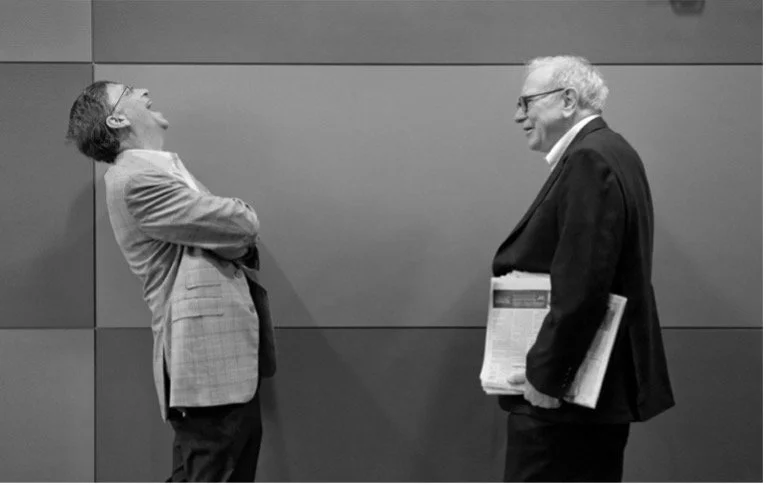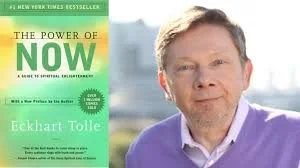
Gifts and Strengths of Five
We can look at the gifts and strengths of type Five with appreciation for the Fives in our life and as something we can develop in ourselves. Ideally, we want to have flexibility and be able to access the gifts and strengths of all nine personality types when they are called for in the situation.
The gifts and strengths of each type are found at the healthy levels of the personality. Here the person is closer to their essence and the gifts and strengths express the essential quality. For the Five this means their sensitivity to deep knowing and understanding underlies their strengths.
Curiosity, Innovation
Curiosity is a quality we naturally have as children that we tend to lose as we grow up. Where a child will ask “why is the sky blue?” adults usually stop wondering about these things. Now it might take a dark night sky full of stars to make us wonder about the nature of the universe.
The definition of the word “wonder” includes both being curious, “to think or speculate curiously” and being amazed, “to be filled with admiration, amazement, or awe”. The gift of the Five is to continue to be immensely curious and full of wonder. Being open-minded and really wanting to understand everything leads the Five to investigate subjects deeply and to never lose their natural curiosity.
Many Fives are scientists, academics, or work in fields where learning, studying and mental endeavours are important. Technology is a modern field where many Fives work- Silicon Valley is full of type Fives. If a Five works in other fields, they will bring their curiosity and cerebral approach to the work they do. For example, a Five who is a lawyer might have an interest in law as a complex system or knowledge management at the office- the system of storing and organizing precedents.
This is a somewhat stereotypical and gender-biased description of Fives so we must take it as a starting point only. Many women who are Fives have trouble identifying with these sorts of examples and may even have trouble identifying themselves as type Five. Curiosity and a cerebral approach can show up in any job and in life generally. For example, many writers, film makers and artists are also Fives, which we will see more about later. Here the innate curiosity fosters original thoughts and ideas expressed through art. Wondering about how things work and endless fascination can lead the Five in many directions.
Curiosity invites us to keep discovering new things, go new places, expand our minds and horizons. Curiosity interrupts our habitual thinking and supports us in understanding at a deeper level, including what is going on in our own personalities. Your curiosity led you here. The quality of our life relates to how we think, whether our minds are open and curious or shut-down.
“The important thing is not to stop questioning. Curiosity has its own reason for existence. One cannot help but be in awe when he contemplates the mysteries of eternity, of life, of the marvelous structure of reality. It is enough if one tries merely to comprehend a little of this mystery each day.”
Closely related to curiosity and having an open mind, is the gift Fives have for innovation and complex thinking. Fives are good at relating disparate ideas and making original connections between subjects. Einstein, Stephen Hawking, and no doubt most quantum physicists are Fives. Using such brilliant Fives as exemplars may give the impression that all Fives are geniuses, but keep in mind these are examples of a cerebral type that includes many regular people, our colleagues and friends.
A famous exemplar of Five is Bill Gates - inventor, genius and founder of Microsoft. In the Netflix documentary “Inside Bill’s Brain,” we see a portrait of how his mind works. Melinda Gates gives a perfect description of Bill’s mind and, in Enneagram terms, the mind of a Five: “He thrives on complexity. He makes a framework in his mind and then he starts slotting in the information. If something doesn’t line up he gets really frustrated. It’s scary. But when Bill stills himself, he can pull together ideas other people can’t see.” In the documentary we also see how Gates has matured over his lifetime - how he is now using his brilliance to solve world problems.
Bill Gates tells the story of first meeting Warren Buffet - it is an amusing description and very Five like:
“He asked good questions and told educational stories. There’s nothing I like so much as learning, and I had never met anyone who thought about business in such a clear way. On that first day, he introduced me to an intriguing analytic exercise that he does. He’ll choose a year—say, 1970—and examine the ten highest market-capitalization companies from around then. Then he’ll go forward to 1990 and look at how those companies fared. His enthusiasm for the exercise was contagious. I stayed the whole day, and before he drove off with his friends, I even agreed to fly out to Nebraska to watch a football game with him.”
While the innovative thinking of Fives can show up as success in these realms of science, technology and business, it is the development of Bill Gates and Warren Buffett into global philanthropists that illustrates the underlying nature of Five. It is their passion for learning and understanding that fuels them, not a drive for money or success although they certainly have achieved that.
Not surprisingly, the original deep thinking of the Five also shows up in the realm of philosophy and religion. The key contemporary spiritual teachers in the work we are undertaking are Fives including Russ Hudson and A H Almaas who teach and write about the Enneagram (Almaas is the creator of the Diamond Approach) and Eckhart Tolle whose teaching is all about presence. The Buddha is said to have been a Five.
Because of their cerebral nature, Fives seem to specialize in awakening through the mind. We all have a connection to waking up through the mind, a kind of mental presence or spaciousness in the Head Center that we may sense when we meditate. Five spiritual teachers have pioneered this kind of knowing and awakening. As type Fives, they may also have suffered personally through a sort of mental torture to arrive at their enlightened knowing.
In his book The Power of Now, Eckhart Tolle describes his own sudden awakening. As a young man he suffered from anxiety and suicidal depression. At the age of 29 he had an experience of being so depressed he kept thinking, “I cannot live with myself any longer.” He realized this thought was so strange it called into question who he was, “who is the “I” that can’t live with myself.” Pondering this question he suddenly felt his mind stop and felt “sucked into a void.” When he woke up from this void everything was illuminated: “That day I walked around the city in utter amazement at the miracle of life on earth, as if I had just been born into this world.” Tolle’s experience was one of sudden enlightenment that led to his spiritual teaching: “What was left then was my true nature as the ever-present I am: consciousness in its pure state prior to identification with form.”
We may not relate easily to the Five strength of being deep, complex, original thinkers – we may feel that Fives are just smarter than us, especially if we only consider examples of geniuses or enlightened beings. So, let’s bring this back to a practical gift that we all need and can appreciate about Five- the gift of loving the truth and wanting to understand, clear headed thinking, and objective perception. Our thinking helps us know what matters, to understand what is really going on, to be clear about what is important.
In an era of “fake news”, crazy conspiracy theories and general disregard for truth, it is easy to grasp the importance of reason and thinking. The gift of Five for loving knowledge and understanding might point us to slow down, research, find good sources for information and turn off crazy “feeds” of constant bits of “news”. The gift for complexity might point us to look deeper, to eschew simplistic opinions.
Ultimately our understanding of reality and our collective evolution depends on learning and knowing the truth- what really happened and is happening. We can think of historical events such as the abolition of slavery or the emancipation of women as leaps in our collective consciousness or understanding.
Solitude, Quiet
Fives have a gift for enjoying solitude. They are the most introverted of the Enneagram types and like to be alone. Fives prefer to work in a private space, with the door closed, because they want to concentrate and think.
This is the gift of introversion described by Susan Cain in her 2012 book “Quiet- The Power of Introverts in a World That Can’t Stop Talking”. This book has become famous for showing how our culture dramatically undervalues introverts and “how much we lose in doing so”. Cain “charts the rise of the Extrovert Ideal throughout the twentieth century and explores how deeply it has come to permeate our culture”. She says that: “At least one-third of the people we know are introverts. They are the ones who prefer listening to speaking; who innovate and create but dislike self-promotion; who favor working on their own over working in teams. It is to introverts … that we owe many of the great contributions to society”. If you aren’t familiar with this book it is highly recommended, and on Cain’s website you can also find many resources related to Quiet. This work is really an “Ode to Five”.
“To understand the immeasurable, the mind must be extraordinarily quiet, still.”
Some of us enjoy silence and would happily head off on a silent retreat while others dread such an experience. But silence is good for all of us and has proven physical and mental health benefits, including lowering blood pressure, stimulating brain growth, reducing cortisol and improving insomnia. There is a direct relationship between the Five’s appreciation of solitude and the way they have better ideas. Perhaps we should question what we are accomplishing running between meetings, being online or constantly engaging with others.
Minimalism
Fives are minimalists. They prefer a simple lifestyle that is inspiring in today’s world of consumerism, materialism and excess. Fives just don’t want much, and they don’t care about a lot of what our culture tells us we “need”. Warren Buffet still lives in the first house he bought in 1958.
Minimalism as a lifestyle is trendy today and the subject of many documentaries, books and websites. You can look online and find lots of resources about living with less consumption. Minimalism is sometimes portrayed as a lifestyle of simplicity, cutting back on “stuff”, and at other times as a design aesthetic- a sort of decluttering. It is generally connected by proponents to greater contentment.
What is admirable about Fives is that they don’t have to try to cut back- they are naturally the original minimalists. They are frugal and uninterested in material goods. They have simple tastes and needs. If we look below the behavior of minimalism to its source, we may be better able to understand and practice this Five strength.
The basic strategy of the Five personality is to be capable and self-sufficient. Because they don’t want to look outside of themselves to have their needs met, they prefer to rely on their own resources. Keeping their needs to a minimum is part of being self-sufficient. The less you need or want the more likely you will be able to meet your own needs.
Interestingly, capitalism and the whole consumer culture of the West depends on us believing we need things. New things, more things. Fives reject this thinking (or lack of thinking).
Reflecting on the gift of Five for minimalism can be a window into what we are really up to with our consumption. If we put our energy into more thoughtful pursuits as Fives do, what might be the impact on our lives? Personally, and spiritually, what are we hungry for that we are trying to fill with stuff?

Seeing in The Dark
Here is a fun strength of Fives - they like to look in the dark. Because Fives want to know the truth, including about things like death, they are not afraid of the dark. Or more accurately, they may be afraid, but they feel compelled to investigate. When less healthy this can come out in bizarre ways as we will see. But for now, let’s consider the gift of this willingness to look. Think of it as an antidote to all our denial and fuzzy thinking.
What is our true situation? We are mortal. The world is a disturbing place.
Directors such as Alfred Hitchcock, David Cronenberg, David Lynch and Blake Edwards illustrate the sort of dark creative mind of type Five- an interest in horror or strange ways of looking at things is evidence of a sort of unflinching curiosity.
“Cronenberg is unique among masters of horror in eschewing the occult. In his movies, the mysteries of the universe are terribly close at hand. Creatures are either birthed in laboratories or crawl out of the darkest recesses of the human mind. “In a lot of horror films, you’re talking about supernatural things,” he told me. “I totally deny that. In fact, I think it’s a distraction, as I think religion is. I mean, to me, that’s the basis of religion: the avoidance of the reality of death.” ”
Many science fiction movies and books are dystopias and Fiveish in that they imagine scary future worlds. Stanley Kubrick is said to have been a Five and his films Dr Strangelove, Clockwork Orange, and 2001: A Space Odyssey, share his frightening future visions. Margaret Atwood may also be a Five and her Handmaid’s Tale is a feminist dystopia, now seen as prescient- a cautionary tale.
We can see that the Five willingness to look in the dark is a way of seeing truths others might avoid. To appreciate the gift of seeing in the dark we don’t have to like horror movies. We only need to look around and see how understanding depends on seeing what’s really happening- lifting the rock and seeing what’s under it.













